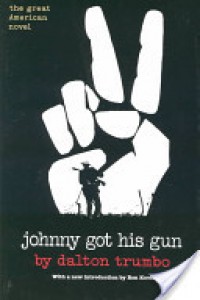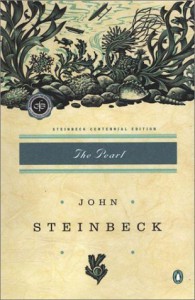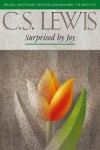Currently reading
Hard Times, A Longman Cultural Edition
Tremendous Trifles
"Симпсоны" как философия: Эссе
Лекции по зарубежной литературе
Пробуждающаяся наука. Математика Древнего Египта, Вавилона и Греции
Letters Written by Lord Chesterfield to His Son
Clarissa, or, the History of a Young Lady
Surprised by Joy
A Bit on the Side
Ojos de perro azul
Три товарища
 Мы живём в слишком сытое время. Заняты делами, рассчитываем наперёд (и расчёты нередко оправдываются, вот что хуже всего-то), вкладываем в будущее. Детей растим, наконец. Да и вообще, в тридцать Ремарк уже не встречает такого отклика в душе, как в девятнадцать.
Мы живём в слишком сытое время. Заняты делами, рассчитываем наперёд (и расчёты нередко оправдываются, вот что хуже всего-то), вкладываем в будущее. Детей растим, наконец. Да и вообще, в тридцать Ремарк уже не встречает такого отклика в душе, как в девятнадцать.
The Adventures of Sherlock Holmes
 This one contains some of the most famous stories of the Sherlockian canon (such as A Scandal in Bohemia, The Speckled Band, and The Red-Headed League), but it has also its fair share of the less brilliant. Five Orange Pips is certainly lame; everyone acts stupidly there, starting with the criminals and ending with Holmes himself, and the most notable piece of investigation is consulting a dictionary.
This one contains some of the most famous stories of the Sherlockian canon (such as A Scandal in Bohemia, The Speckled Band, and The Red-Headed League), but it has also its fair share of the less brilliant. Five Orange Pips is certainly lame; everyone acts stupidly there, starting with the criminals and ending with Holmes himself, and the most notable piece of investigation is consulting a dictionary.I have of course read the stories before, but couldn't be bothered to rate them separately, so here's the rating for the collection: "liked it".
Swords and Deviltry
 Not any too deep, the characters barely defined, and the word usage sometimes making me wonder if English was Leiber's second language. But perhaps entertaining enough.
Not any too deep, the characters barely defined, and the word usage sometimes making me wonder if English was Leiber's second language. But perhaps entertaining enough.The book is made up of three parts: one apiece for the previous history of both characters, and the final one in which they meet. But I found that the characters we see in the previous history are almost unrecognizable in the final story, both in themselves and in their relationships.
Many word choices seem very extravagant, but the worst for me is using this world's fencing terms in describing the sword techniques of the fantasy world...
The Seven-Percent Solution
 The first half is promising. Unfortunately the promise is never fulfilled.
The first half is promising. Unfortunately the promise is never fulfilled. We get a mystery of a dubious quality, almost no resolution to that either, and in the last 10 pages the author suddenly remembers that he had set up a fertile ground for psychoanalysis in the beginning and tries to wrap it up as quickly as possible.
The writing style, however, is nicely similar to Conan Doyle's, and the links to other stories from the canon are maintained. I liked especially that 3-4 original Conan Doyle's stories were roundly denounced by Watson as miserable forgeries.
These Old Shades
 I've heard somewhere that the romance genre is less demanding as to the plot, characterization, and writing quality. Though I still cannot understand why.
I've heard somewhere that the romance genre is less demanding as to the plot, characterization, and writing quality. Though I still cannot understand why.This one demonstrates it all too clearly. It starts out well enough, with the absolutely brilliant protagonist who can do no wrong even if frequently described as evil, no, Evil (which probably consists in some love intrigues and duels while conveniently letting you preserve the honour intact). He has some witty lines, at first more, then less and less.
But the heroine is 100% cliche, incredibly beautiful and of course redheaded, obviously of noble birth in spite of a common upbringing, easily putting aside her enforced boyishness (which isn't saying things like "bah", but should go quite a bit deeper, at 19 years old!!), winning everyone's heart with some twinkling and dimpling (yeah, that's what it says), and then even more nobly sacrificing herself for love.
The piece about older man falling in love with a young girl is realistic enough. 40 years, middle-age crisis, all that. But to depict him as Reforming for Love's Sake and Rejecting Her Because He Isn't Worthy - no. Just no.
And finally about the writing quality. In a scene designed to be a climax, the nervous tension is created by having the protagonist's friends sit around saying that they're real nervous and tense, and that he has created such a tense atmosphere that their nerves are on edge. That's right, we wouldn't have known else. The absolute pinnacle is reached when in the middle of his monologue, which should reveal shocking things and make a criminal confess, one of the people in the audience whispers to another: "I wonder how he manages to hold his audience so still."
The Birds: (Fremdsprachentexte)
 I fail to be creeped out, or even impressed. The lack of explanation got me and didn't let me suspend disbelief right where it was needed. Rationally, however, I can see there are some clever parallels (bombings etc.) and suggestions of hidden menace; the main character is well drawn; all in all, I'm sure many people would enjoy it.
I fail to be creeped out, or even impressed. The lack of explanation got me and didn't let me suspend disbelief right where it was needed. Rationally, however, I can see there are some clever parallels (bombings etc.) and suggestions of hidden menace; the main character is well drawn; all in all, I'm sure many people would enjoy it.
Brat Farrar
 Sweet, but not too sweet.
Sweet, but not too sweet.Several people too good to be true, one genuine villain, and not too much of a mystery. In fact, this is far more a novel than a mystery, which is typical of Josephine Tey. English country air, nice people, some startling coincidences and all's well that ends well. A nice holiday kind of book.
 1
1
The Maltese Falcon
 The romantic story of hunting for a lost jewel and the rough hard-boiled detective don't go well together. I kept expecting a note of common sense to appear, as for example, it would be real fun if the gambler's war theory turned out to be true, and all the trappings were just so much dramatic fakes run up for the benefit of the naive sleuth. So here's another jarring note: he isn't naive, why the heck does he swallow all the falcon talk without any apparent scepticism?
The romantic story of hunting for a lost jewel and the rough hard-boiled detective don't go well together. I kept expecting a note of common sense to appear, as for example, it would be real fun if the gambler's war theory turned out to be true, and all the trappings were just so much dramatic fakes run up for the benefit of the naive sleuth. So here's another jarring note: he isn't naive, why the heck does he swallow all the falcon talk without any apparent scepticism?To this inherent flaw in the conception add the flowery prose, the inexhaustibly detailed descriptions and the thin character interaction, and I can see why the movie is so much more popular than the book.
Johnny Got His Gun
 Somehow, I think that this would be an even more powerful book without the last speech from Joe. The message is unmistakable anyway, and leaving people to think about it on their own would have made them turn it over longer, and take it more and more to heart. Probably ending a book without a clear resolution was less acceptable those days.
Somehow, I think that this would be an even more powerful book without the last speech from Joe. The message is unmistakable anyway, and leaving people to think about it on their own would have made them turn it over longer, and take it more and more to heart. Probably ending a book without a clear resolution was less acceptable those days.
Весёлые и грустные истории про Машу и Ваню
 Инструкция по воспитанию московских мажоров.
Инструкция по воспитанию московских мажоров.Извините, но выглядит это именно так. Тонны подарков и покупные развлечения наполняют эту книжку целиком, единственное доморощенное занятие, которое я здесь увидела - это строительство шалаша. Всё остальное из магазина, практически без ограничений, и покупка понравившегося возводится родителями в какую-то высшую ценность, будто не купил - значит, обманул доверие.
Забавность историй несколько преувеличена, да и повторяются сюжеты слишком уж часто. А познакомиться с этими детьми из книжки вы не сможете - отец и сам постоянно удивляется, как часто они меняются, и не показывает нам, что у каждого ребёнка есть свой характер.
Юмор обычно натужный, и вообще лёгкости стиля здесь не ищите - это же правительственный журналист, как ещё в Коммерсанте-то пишут?
The Lottery (Tale Blazers)
 We live in a world where a 30-year-old man can marry and so legally rape a 10-year-old girl, aided and abetted by her relations - and we really need Ms. Jackson to tell us that blindly following traditions might be a bad thing.
We live in a world where a 30-year-old man can marry and so legally rape a 10-year-old girl, aided and abetted by her relations - and we really need Ms. Jackson to tell us that blindly following traditions might be a bad thing.Honestly, the history around this story strongly reinforces the stereotype many outsiders (like me) have about America and Americans: that they only ever care about fellow Americans and are quite unable to relate to anyone else, or find their feelings, sufferings and lives in any way important. Certainly I exaggerate here, not all Americans think that, and those who do, don't think that all of the time. But why harp on this fault yourselves?
So, let's see about this story. All right, the lottery resembles draft. And that is bad, because a random man was sent to war. And war is bad, because the men you sent there die. Stop here.
War is bad, actually, because people die, and it's still bad when there are no Americans among them. So substituting the "sending our men to war is bad" for "war is bad" is, this time I really mean it - BAD. Don't do it.
Limpieza de sangre (Alatriste, #2)
 The atmosphere is all right, and we still get a lot of author's opinions about the old and new politics of Spain and the spirit of its people. But the plot is very weak and full of holes. For one thing, no one ever blackmails influential people openly, in front of a crowd, or at least they very quickly and effectively strike back.
The atmosphere is all right, and we still get a lot of author's opinions about the old and new politics of Spain and the spirit of its people. But the plot is very weak and full of holes. For one thing, no one ever blackmails influential people openly, in front of a crowd, or at least they very quickly and effectively strike back.I also cannot quite swallow the omniscient first-person narrator, without even the flimsy excuse that he was told afterwards about the happenings he didn't witness and the feelings of the participants - because obviously Alatriste isn't the kind of person who talks at length about anything on earth, still less feelings, still less his own.
Чапаев и Пустота
 Выскажу непопулярную точку зрения: Пелевина очень легко читать!
Выскажу непопулярную точку зрения: Пелевина очень легко читать! В этой книге вам будет понятен смысл каждого предложения. Не нужно будет чесать в затылке, пытаясь так и эдак приложить к реальности "оригинальные" метафоры. И даже навесить на каждую сцену соответствующий ярлык - "сон", "бред" или "реальность" - приблизительно получится.
И вот это, безотносительно к сюжету, идеям и глубинному смыслу, которые всё равно обсуждать нос недорос, меня очень радует. Радует, что можно ещё найти почти современную русскую прозу, которая не нуждается в бесконечной накрутке прилагательных и сомнительной грамматике для того, чтобы читателя озадачить, потревожить и просветить.
The Pearl
 I found the style rather forced, and the overflowing didactism wouldn't have gone well even if I could agree with the message. Which is, let me tell you: don't try to better yourself, if you were born poor and without education don't try for an education for your kids, 'cause for that you need money and money is evil. Is that really okay with you people?
I found the style rather forced, and the overflowing didactism wouldn't have gone well even if I could agree with the message. Which is, let me tell you: don't try to better yourself, if you were born poor and without education don't try for an education for your kids, 'cause for that you need money and money is evil. Is that really okay with you people?A minor beef I also have here is about making moral judgements on nature, like calling the scorpion evil and making out it'd really love to poison this sweet innocent kid, as it has no other purpose in life.
I guess that will be all I need from Steinbeck: I liked Of Mice and Men a lot, but from there it went downhill, quick.
Волшебная гора
 Написано мастерски. Конечно, простецкие товарищи вроде меня всё же в глубине души хотели бы, чтобы хоть где-нибудь хоть что-нибудь было им высказано напрямую, сформулировано чётко и исчерпано до конца. Но не приходится сомневаться, что любая попытка добавить разъяснений непоправимо подорвала бы целостность и силу воздействия книги. Если снабдить объяснениями лишь часть обстоятельств, то остальные станут уже слишком туманны, придётся растолковать и их, а там оглянуться не успеешь - и всё, сплошная Война и мир, художественная ценность испарилась как не бывало, читать невозможно.
Написано мастерски. Конечно, простецкие товарищи вроде меня всё же в глубине души хотели бы, чтобы хоть где-нибудь хоть что-нибудь было им высказано напрямую, сформулировано чётко и исчерпано до конца. Но не приходится сомневаться, что любая попытка добавить разъяснений непоправимо подорвала бы целостность и силу воздействия книги. Если снабдить объяснениями лишь часть обстоятельств, то остальные станут уже слишком туманны, придётся растолковать и их, а там оглянуться не успеешь - и всё, сплошная Война и мир, художественная ценность испарилась как не бывало, читать невозможно.Да что уж говорить, даже в рецензии никак не выберешь пару тем, о которых поговорить бы: ведь тогда получается, что остальные тридцать незаслуженно обойдены! О чём эта книга:
* о смерти, которая есть неизменность
* о том, порок ли болезнь или несчастье
* о свободе
* об устройстве общества
* о любви вообще и невозможности любви одновременно страстной и счастливой
* о музыке и её власти над человеком
* и конечно, о времени - это как раз нам говорят прямо...
Придётся не писать рецензию, а ограничиться личными впечатлениями, а они не такие уж и приятные. Наверное, Манн вообще не для меня. В точности как и с Будденброками, я охотно признаю, что книга замечательная и даже значительная, но тем не менее меня она не трогает. Пассаж о музыке - пожалуй, единственное исключение здесь.












